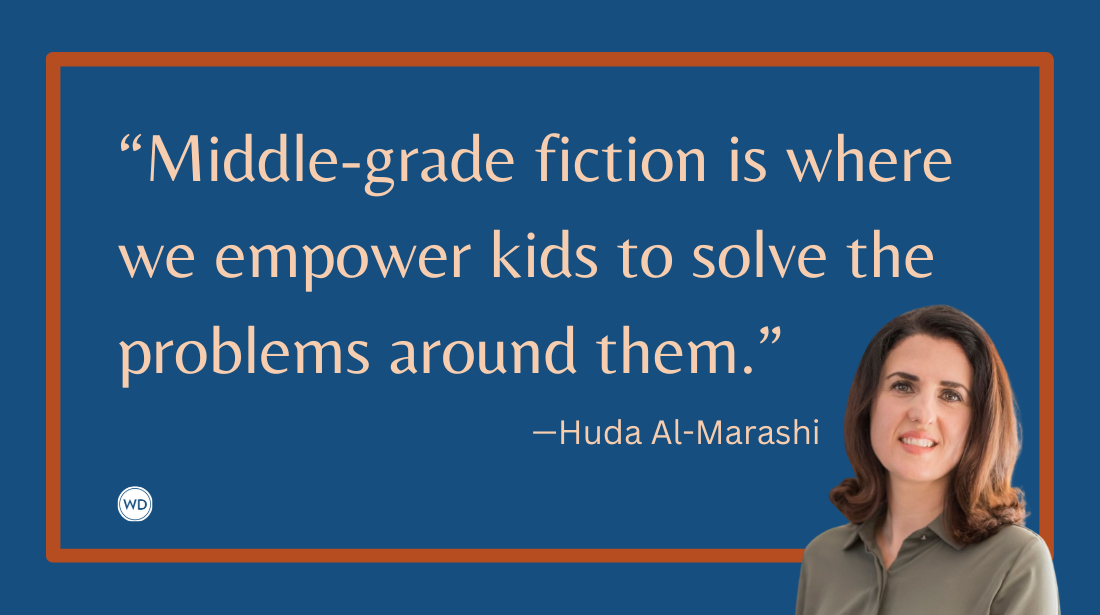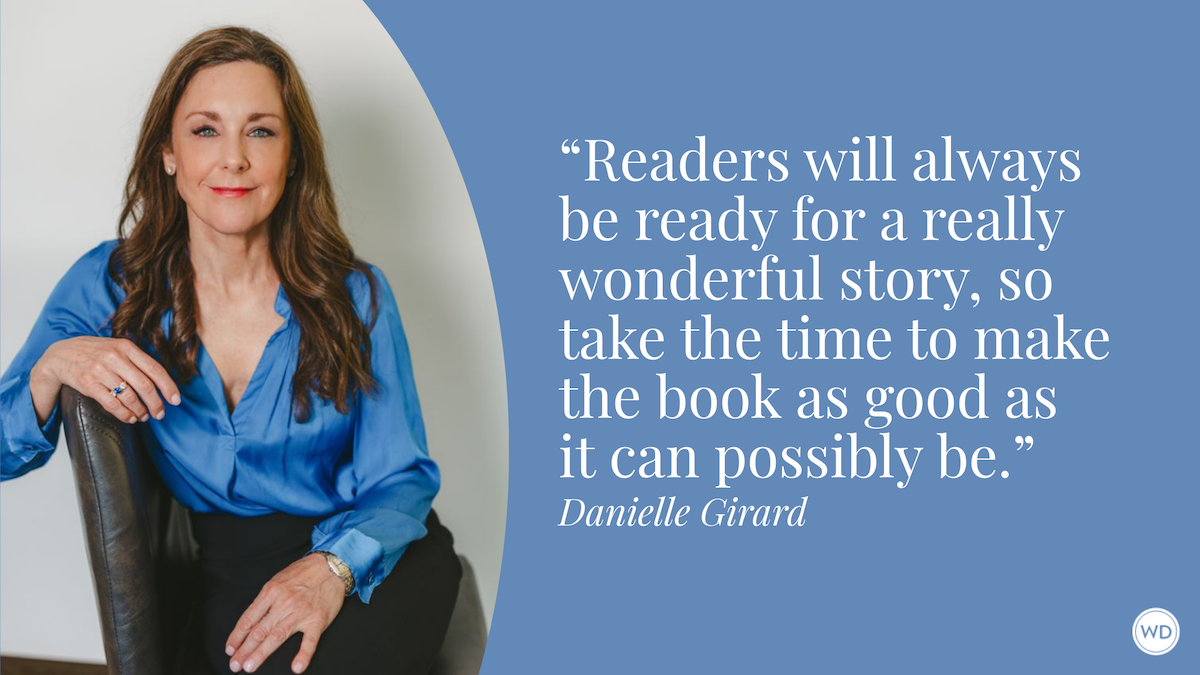Writing Mr. Right—in Modern Romance
Author Alina Khawaja shares her top rules for writing Mr. Right in romance fiction, including how to make him hot and pure stinkin’ cute.
Every time I see a tweet with a fan edit of a male character with the caption “Fictional men written by women <3” I immediately understand what the person means, even if I have no idea who that male character is. There’s a certain essence to a male character who is written by a woman, especially within the romance genre, that makes people swoon over them. It’s because women write the qualities in men that they value.
Seriously, more men should be reading rom-coms if they want to find out how to properly court the young lady they are interested in. In my rom-com Writing Mr. Right, Ziya does not necessarily write her own Mr. Right, but I’m going to explain what makes a Mr. Right in romantic fiction, and how I went about making Aashiq, her love interest, a Mr. Right.
Mr. Right knows how to communicate.
Let’s be real: There’s a reason the miscommunication trope is among the top five most hated tropes in romantic fiction. Sometimes adults can have a hard time expressing themselves; it happens to the best of us. But if a grown man goes a whole book not being able to tell the protagonist how he feels, even once, that’s when it becomes frustrating. Mr. Right should be able to talk about how the protagonist makes him feel, and as an added bonus, if it’s because being with the protagonist makes him believe like he can finally speak openly, then you’re cooking with all the right spices.
In Writing Mr. Right, Aashiq is all about communication: He says everything he thinks and feels, because to him, what’s the point of existence if you just hold everything back? But when it comes to the deeper stuff, like sensitive emotions he hasn’t grappled with before, that’s where Ziya comes in and gently encourages him to make room for those feelings, and in turn, it helps her learn how to communicate with him too.
Mr. Right knows what you need without needing to ask.
Protagonists typically carry a lot of burden. Whether it be internal issues they need to work through, like feeling misunderstood or like they’re not worthy, or external issues, like dealing with an overbearing boss and an intrusive family. Sometimes, you don’t know how to ask for things. This is where Mr. Right steps in—whether it’s with something like showing up to her doorstep with takeout, giving her a hug when she’s crashing out, or even just offering to be an impartial ear for her to vent to. Mr. Right will be someone who can take one look at the protagonist and know in an instant what they need.
In Writing Mr. Right, Aashiq does a lot of things without asking Ziya—often to her detriment, but when it comes to figuring out what she needs, there’s no better expert than him. After all, who’s gonna know you better than the physical manifestation of your artistry?
Mr. Right has to be hot.
Okay, is this one superficial? Maybe. Do I still mean it? Absolutely. But what works about having a Mr. Right who is hot is that it can mean anything, because attraction is subjective. Some people find six packs hot; others find them gaudy. Some people salivate over tall, dark, and handsome; others would rather die than be near someone who could walk into the audition room for a romantasy screen adaptation and land the role on the spot. And don’t get me started on the controversy of blond men. But no matter what attracts you, Mr. Right should have qualities that your protagonist thirsts after. That could be hair black as the shadows, cheekbones that are so sharp it can cut someone, or a lean body that they can wrap themselves up in.
And when I say “hot” can mean anything, I also mean physical attraction isn’t the only aspect at play. For those who don’t experience physical attraction, as long as Mr. Right has a good personality, that can be considered “hot” too. A man who can make you laugh? Hot. A man who demonstrates reliability? Smoking. A man who knows how to communicate his feelings? Call the fire department, because I’ve just burst into flames. Yeah, okay, the bar is in hell, but that’s what romantic fiction is for.
In Writing Mr. Right, Ziya finds Aashiq physically attractive, but his upbeat personality in comparison to her own pessimism is a turn off. That is, until she starts to see the world in the same way he does, and that’s when her attraction meter ramps right up.
Mr. Right is just pure stinkin' cute.
Make no mistake; there is a difference between “hot” and “pure stinkin’ cute.” “Hot” is everything I described above. “Pure stinkin’ cute” is when Mr. Right does something that makes you kick your feet and cackle to yourself like an old witch in bed at two a.m. after you told yourself “one more chapter” 10 chapters ago. I’m talking Mr. Darcy hand clench levels of stinkin’ cute. I’m talking about when he finally calls her by her first name after spending the entire book calling her by her last name. I’m talking about when he kisses her for the first time and then later on admits that he’d been wanting to do that for a long time. I’m talking about “you came” and “you called.” I don’t know about the rest of you, but I need a Mr. Right who is down horrendous for his leading lady, like all he has to do is think of her and he’s in the trenches. This especially hits in rivals to lovers and enemies to lovers, and it hits even harder when you can pinpoint the exact moment Mr. Right folds.
In Writing Mr. Right, Aashiq is the sweetest love interest I have ever written. I wanted him to be inspiring, uplifting, and overall, a huge Loverboy. One of my personal favorite feet-kicking moments is when he helps Ziya put on a cardigan, and he automatically sweeps her hair out of the way, so it won’t get caught between her shirt and the cardigan. It’s such a delicious and intimate gesture, and it’s just so stinkin’ cute.
Above all, a Mr. Right should always end with a for me.
In romance, it can mean multiple things. It can mean the singular love interest is who your protagonist ends up with, even if the reader thinks the protagonist is better off alone or the love interest is undeserving of the protagonist. In the ever-fluctuating-in-popularity love triangle, it means the protagonist chooses who will be right for them, whether that’s in the short term or long term, even if it is not the popular choice among readers (or if you’re like Tessa Gray from the Infernal Devices series, you get the best of both worlds). Or sometimes, it really does mean your protagonist chooses themselves as Mr. Right. If they can’t find someone who will communicate with them, who comes to understand them well enough to know what they need, who they don’t find attractive or stinkin’ cute, then what’s more important is learning what they ultimately want from their Mr. Right, and deciding to wait until they find them.
But thankfully, in romantic fiction, the protagonist will end up with their Mr. Right, and it gives the rest of us hope that one day, we’ll find our Mr. Right, too.
In Writing Mr. Right, I can confirm Ziya ends up finding her Mr. Right. The real question is… can she keep him? I guess you’ll have to read to find out!
Check out Alina Khawaja's Writing Mr. Right here:
(WD uses affiliate links)









